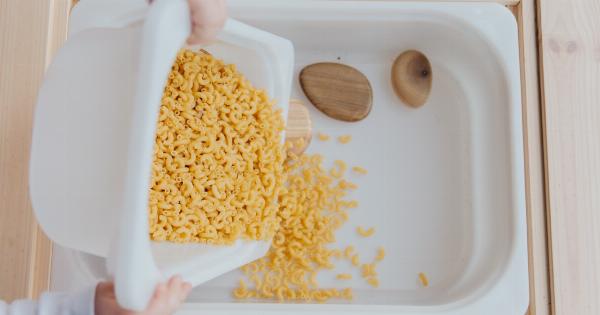Friendships are an essential part of a child’s life, providing emotional support, enhancing social skills, and fostering personal growth. As parents, it is natural to want our children to have healthy and lasting friendships.
But how do we know if our child is spending time with a best friend forever? In this article, we will explore the importance of friendships, signs of a strong bond, and how to nurture and support these valuable relationships.
The Importance of Friendships
Friendships play a vital role in a child’s development. They offer emotional support and can serve as a buffer against stress, anxiety, and loneliness.
Positive friendships contribute to a child’s self-esteem, confidence, and overall well-being. These relationships also provide opportunities for social learning, conflict resolution, and empathy development.
Having a best friend forever can offer even more benefits, including:.
- Emotional Support: A best friend forever is someone your child can confide in, share their joys and sorrows, and seek advice from. It provides a safe space for emotional expression and helps build emotional intelligence.
- Shared Interests: Best friends forever often share common hobbies, interests, and values. This shared bond can lead to increased engagement, motivation, and a sense of belonging.
- Positive Influence: Best friends forever can act as positive role models for each other. They can inspire and motivate one another to achieve personal and academic goals.
- Conflict Resolution Skills: Close friendships require navigating conflicts and finding resolutions. Having a best friend forever can enhance your child’s ability to communicate, compromise, and understand differing perspectives.
Signs of a Strong Bond:
Sometimes, it can be challenging to determine whether your child has formed a best friend forever. However, certain signs can indicate a strong bond and a lasting friendship. Look out for these signs:.
- Shared Time and Activities: Best friends forever spend quality time together, engaging in shared interests, hobbies, and activities.
- Open and Honest Communication: A strong bond is built on open and honest communication. Your child and their best friend forever should feel comfortable sharing their thoughts, feelings, and concerns with each other.
- Mutual Empathy and Understanding: Best friends forever demonstrate empathy towards each other’s struggles and successes. They understand each other’s feelings and perspectives, offering support and encouragement.
- Trust and Loyalty: A best friend forever relationship is built on trust and loyalty. Your child should feel safe, knowing they can rely on their friend in times of need.
- Conflict Resolution Skills: Healthy friendships involve occasional conflicts, but best friends forever know how to resolve them effectively. They can navigate disagreements and find compromises without damaging their relationship.
Nurturing and Supporting Friendships:
As parents, there are various ways we can nurture and support our child’s friendships:.
- Encourage Social Activities: Provide opportunities for your child to engage in social activities where they can meet new friends. Consider extracurricular activities or community programs that align with their interests.
- Host Playdates: Organize playdates to encourage social interactions. Inviting your child’s potential best friend over for a playdate can help foster a deeper connection.
- Teach Communication Skills: Help your child develop effective communication skills. Teach them active listening, expressing their thoughts and feelings, and resolving conflicts peacefully.
- Model Healthy Friendships: Be a positive role model for healthy friendships. Demonstrate qualities such as kindness, empathy, and loyalty in your own friendships.
- Encourage Empathy and Inclusivity: Teach your child the importance of empathy and inclusivity. Help them understand the value of diverse friendships and accepting others for who they are.
- Set Digital Boundaries: In today’s digital age, it is crucial to set boundaries for screen time and online interactions. Encourage your child to have face-to-face interactions with their friends and develop offline connections.
Conclusion
Having a best friend forever is a wonderful and fulfilling experience for any child. It is essential to recognize the importance of friendships and provide the necessary support and guidance to help your child cultivate strong and lasting relationships.
By encouraging social activities, teaching communication skills, and modeling healthy friendships, you can nurture your child’s friendships and help them form lifelong connections.




























